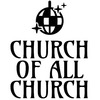Pentecost is many things: it’s a Greek word meaning “fifty,” a Jewish harvest festival, and the New Testament event where God’s Holy Spirit descended on the twelve apostles.
The book of Acts provides insight into Pentecost, detailing the evangelistic efforts of the twelve apostles as they proclaimed the gospel and guided the Early Christian Church. Prior to His ascension into heaven (as described in Acts 1), Jesus instructed His disciples on how and where to disseminate the good news.

“Then [the apostles] gathered around [Jesus] and asked Him, ‘Lord, are you at this time going to restore the kingdom of Israel?’
He said to them: ‘It is not for you to know the times or dates the Father has set by His own authority. But you will receive power when the Holy Spirit comes on you; and you will be my witnesses in Jerusalem, and in all Judea and Samaria, and to the ends of the earth.” (Acts 1:6-8 NIV)
After Jesus’ ascension, the apostles returned to Jerusalem for the Jewish harvest festival and waited for the Holy Spirit to come upon them. On the day of Pentecost, fifty days after the Jewish Passover Feast and seven weeks after Jesus’ resurrection, Jesus’ promise was fulfilled.
“On the day of Pentecost, they were gathered together in one location. Suddenly, a sound like the rush of a fierce wind descended from heaven and filled the entire house where they were sitting. They saw what appeared to be tongues of fire that separated and settled on each individual. All of them were filled with the Holy Spirit and began to speak in different languages as the Spirit empowered them.” (Acts 2:1-4 NIV)
While this was happening, Jews had gathered in Jerusalem from many nations for the harvest festival. When they heard this great wind-like noise, they gathered around the house to see what it was. The apostles came out to speak to the people, and through the power of the Holy Spirit the whole crowd understood them in their own languages.
Galileans? Then how is it that each of us hears them in our native language?’” (Acts 2:7-8 NIV)
What happened next was an incredible speech from the apostle Peter. He delivers the entire message of the saving grace of God given through the death and resurrection of Christ Jesus and, through the miraculous power of the Holy Spirit, everyone gathered understands him!
“Those who accepted his message were baptized, and about three thousand were added to their number that day.” (Acts 2:41 NIV)
This marked the true inception of the Early Christian Church. At Pentecost, God’s bestowal of the Holy Spirit upon the apostles served as the driving force that initiated the dissemination of the gospel across the globe. Today, Christianity stands as the most prevalent religion worldwide, with individuals discovering Jesus daily. This is why each year, on the seventh Sunday following Easter, we commemorate Pentecost and honor God’s gift of the Holy Spirit residing within us.
Pentecostalism
Pentecostalism is a Christian movement emphasizing Holy Spirit baptism, Spiritual gifts (e.g., speaking in tongues, healing), Evangelism and missionary work, Personal experience and conversion and Biblical authority. Pentecostal churches are part of a Protestant Christian movement that emphasizes personal experiences with God, supernatural healing, and speaking in tongues:
Restrictions: some Pentecostals don’t drink, smoke, or participate in anything that would alter their conscience. Women are not allowed to cut their hair, as they believe that a woman’s hair is her glory.
Pentecostals believe in the Bible’s divine inspiration and inerrancy, and that all Christians should seek a post-conversion religious experience called “baptism with the Holy Spirit”.
Practices: Pentecostals express their love for God through singing, dancing, clapping, and raising their hands. They also believe in the importance of corporate worship, and that believers experience a unique sense of unity and fellowship when they come together to worship.
Services: Pentecostal services can seem more dramatic than other forms of Christian mass.
Origin: The Pentecostal movement coalesced at the beginning of the twentieth century, and its growth was accelerated by the Azusa Street Revival of 1906. Charles Fox Parham is regarded as the founder and doctrinal father of the worldwide Pentecostal movement.
Pentecostalism emerged in the early 20th century, particularly in the United States. Key figures include:
- Charles Parham (1873-1929)
- William Seymour (1870-1922)
- Azusa Street Revival (1906)
Beliefs:
- Trinity (Father, Son, Holy Spirit)
- Salvation through faith in Jesus Christ
- Baptism with the Holy Spirit (separate from water baptism)
- Spiritual gifts (charismata) for all believers
- Divine healing and deliverance
Practices:
- Worship: vibrant, expressive, and charismatic
- Prayer: emphasis on personal and corporate prayer
- Bible study: in-depth, Spirit-led interpretation
- Evangelism: spreading the Gospel, missions
- Community: strong emphasis on fellowship and unity
Sub-groups:
- Classical Pentecostalism (e.g., Assemblies of God)
- Charismatic Movement (within mainline churches)
- Neo-Pentecostalism (e.g., Word of Faith, Prosperity Gospel)
- African Pentecostalism (e.g., African Initiated Churches)
Statistics:
- 500 million+ adherents worldwide
- Fastest-growing Christian movement
- Significant presence in Africa, Asia, and Latin America
Notable Pentecostal Leaders:
- Billy Graham (1918-2018)
- Oral Roberts (1918-2009)
- Benny Hinn (born 1952)
- Reinhard Bonnke (1940-2019)
- T.D. Jakes (born 1957)
Criticisms and Controversies:
- Theology and doctrine
- Emphasis on material prosperity
- Lack of accountability and oversight
- Exclusivist views
- Conflicts with other Christian denominations
Would you like:
- More information on specific Pentecostal denominations
- Analysis of Pentecostal theology and practices
- Discussion on criticisms and controversies
- Insights into Pentecostalism’s global impact
- Personal perspectives or experiences shared
Let me know!

